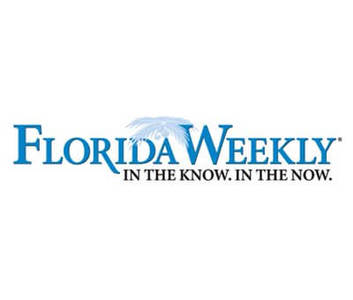Florida Weekly
WRITTEN ON: AUG 15 2019
In popular culture, there is a subconscious image of opioid dependents that suffer from an addictive personality; namely, that they can’t break free from their destiny to meet their demise. Recent statistics from the National Institute of Drug Abuse do not help matters, as the age-adjusted rate of drug overdose deaths increased significantly in Florida by 5.9 percent from 2016 to 2017. We should accept these findings, but understand that with a change in approach, we can provide a way out for those that are suffering from this crisis.
We must allow opiate dependents to enter the halls of modern medicine so that what was irreversible yesterday can become accessible today. Over the last decade, modern biotechnology has allowed physicians to understand that opioid dependency is a direct consequence of the distortion of the natural endorphin receptor levels in our brains, triggered by heavy opioid abuse.
Recognizing this, I developed a process called Accelerated Neuro Regulation, which focuses on treating opiate dependency at the receptor level and producing endorphin/receptor balance. ANR is implemented at Landmark Hospital in Naples and a support center in Tampa, and allows for withdrawals and cravings to be reversed. Patients can regain their freedom to resume normal lives within 48 hours of hospitalization.
Institutions outside of modern medicine like rehab and detox centers cannot achieve this result.
In April, Gov. Ron DeSantis appointed Attorney General Ashley Moody to oversee a taskforce designed to offer strategies and recommendations for fighting the opioid epidemic. I urge the attorney general to recommend funding mass access to this new generation of treatment, where patients will no longer be defined and blamed by a behavior dictated by chemical unbalance.
My work in the state of Florida has allowed me to see first-hand that we can conquer the challenge of erasing misguided theories about opioid dependency. We can help dependents and provide them with the knowledge of an effective, safe and humane treatment that they deserve.
Opiate dependency should not be labeled a chronic condition anymore. It was only viewed as such before the existence of a treatment option that could access the root cause of dependency at the receptor level. Now, we can allow for rapid withdrawals to be managed and controlled and cravings to be eliminated. ¦
Andre Waismann is an intensive care medicine physician with more than 30 years of experience. He serves as medical director of ANR Clinic at Landmark Hospital in Naples, Florida. An intensive care medicine physician with more than 30 years experience, Dr. Waismann saw the effects of opioid addiction during his tenure with the Israeli Defense forces, where he treated inmates addicted to street opiate drugs, and veterans who developed dependency due to pain management treatments. He opened his first U. S. clinic in Naples in 2018, as part of his mission to help people understand that opioid dependency is a treatable medical condition.
